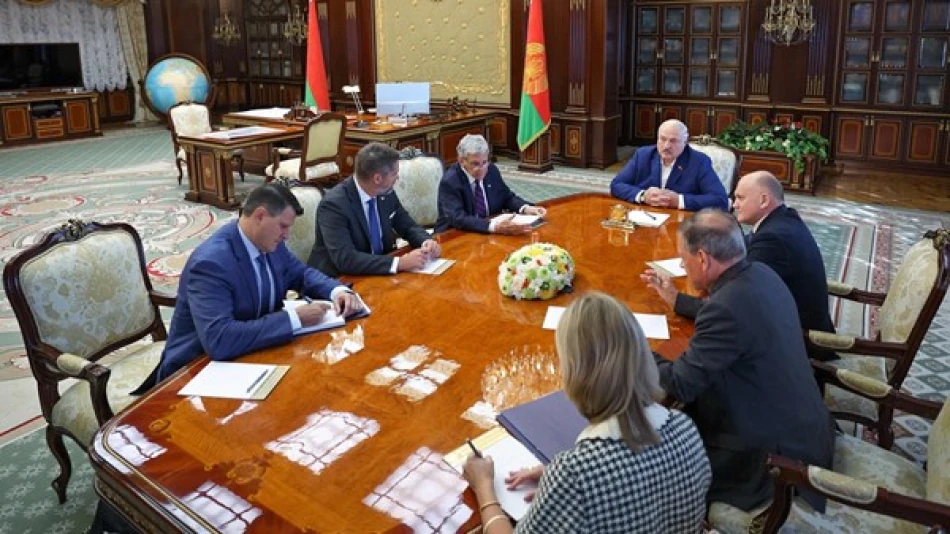
US Official: Washington Seeks to Reopen Embassy in Belarus, Restoring Diplomatic Ties
Trump Envoy Signals Major Reset: US Seeks to Reopen Belarus Embassy After Two-Year Freeze
In a significant diplomatic shift, President Trump's special envoy John Cole has informed Belarusian President Alexander Lukashenko that Washington wants to reopen its embassy in Minsk and normalize bilateral relations. The overture comes as Belarus released 52 individuals who are now heading to Lithuania, marking what could be the beginning of a broader thaw between the two nations after years of sanctions and diplomatic isolation.
A Strategic Reversal in Eastern Europe
The United States shuttered its embassy in Minsk in February 2022, amid escalating tensions over Belarus's support for Russia's invasion of Ukraine and the ongoing crackdown on domestic opposition following the disputed 2020 presidential election. The embassy closure was part of a broader Western response that included multiple rounds of sanctions targeting Lukashenko's regime and key sectors of the Belarusian economy.
Cole's mission to Minsk represents a stark departure from the Biden administration's approach of diplomatic isolation. A US Embassy spokesperson in Vilnius confirmed that Cole led an American delegation to Belarus, coinciding with the release of the 52 individuals—though their identities and the nature of their detention remain unclear.
Trump's Transactional Diplomacy Returns
This diplomatic opening reflects Trump's preference for direct engagement over prolonged isolation, even with authoritarian leaders. The approach mirrors his previous outreach to North Korea's Kim Jong Un and his stated desire to negotiate directly with Vladimir Putin over Ukraine.
For Lukashenko, who has ruled Belarus since 1994, the American overture provides a potential lifeline. Western sanctions have severely impacted Belarus's economy, forcing the country into deeper dependence on Russia. Normalizing relations with Washington could offer Minsk greater diplomatic maneuverability and access to international markets.
Implications for Regional Power Dynamics
The timing of this diplomatic initiative is particularly significant as it occurs while Russia remains heavily committed to its war in Ukraine. Belarus has served as a staging ground for Russian forces and missile strikes, making it a crucial partner in Moscow's military operations.
Any meaningful rapprochement between the US and Belarus could potentially weaken Russia's grip on its closest ally in Europe. However, the practical challenges are enormous—Lukashenko's regime continues to hold thousands of political prisoners, and Belarus remains under extensive EU and US sanctions.
Market and Economic Considerations
International investors have largely avoided Belarus since 2020, with foreign direct investment plummeting and major companies exiting the market. A genuine normalization of US-Belarus relations could gradually reopen access to Western financial systems and technology, particularly benefiting Belarus's significant IT sector and agricultural exports.
However, any sanctions relief would likely require substantial political reforms and a clear distancing from Russia's war effort—conditions that may prove politically impossible for Lukashenko to accept while maintaining power.
The Path Forward
While the prisoner release and embassy discussions represent positive steps, the gulf between current US-Belarus relations and full normalization remains vast. The success of Trump's approach will depend on whether Lukashenko is willing to make meaningful concessions on human rights and foreign policy alignment—or whether Washington is prepared to overlook these issues in pursuit of broader geopolitical gains.
The initiative represents a high-stakes diplomatic gamble that could either help pry Belarus away from Russian influence or legitimize an authoritarian regime without securing meaningful reforms.
Most Viewed News

 Layla Al Mansoori
Layla Al Mansoori






